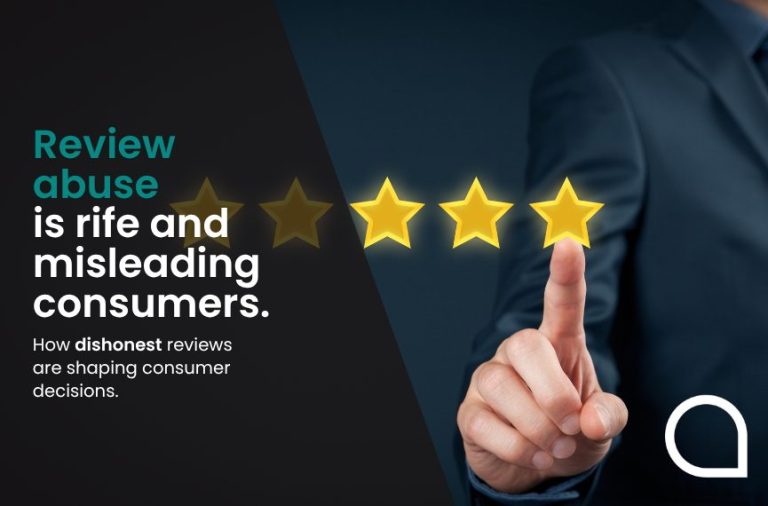
What are the penalties for AI misuse?
Embracing Artificial Intelligence (AI) whether for personal or professional use has clear advantages – and Google agrees. While it’s a common misconception that Google automatically
Have you heard the term ‘robot meta tag’ while optimising your website for search engines?
If you’d like to learn more about the definition and purpose of robot meta tags and whether you should be using them as part of your SEO (Search Engine Optimisation) strategy, simply carry on reading.
Below, we explain whether these meta tags are necessary and how you can use them.
Also known as robot meta directives, a robot meta tag is a snippet of HTML (HyperText Markup Language) code that instructs search engine robots.
It tells these web-crawling search engine robots what they can and cannot do to a HTML page. These snippets of information can be found in the ‘<head>’ section of a webpage.
The purpose of robot meta tags is to control how these search engines crawl and index page information. It also affects how that page is displayed in the SERPs (Search Engine Results Pages). Another use for robot meta tags is to show search engine robots which links should be followed and which should be ignored.
The robot meta tag is just one example of the meta tags that Google and other search engines can read.
A meta tag is simply a snippet of this code that provides data about data (meta data), providing information about the page content including the title, description, author, publish date, location, and more.
The robot meta tag provides information about which links should be followed and/or not followed and which webpages should be crawled and/or not crawled.
While there are a range of robot meta tags recognised by Google, there are four main functions of the robot meta tag: follow, nofollow, index, and noindex.
A typical robot meta tag is inserted into the ‘<head>’ section of a webpage and looks like this;
‘<meta name =”robots” content=”index”>’
In this example, the robot meta tag is instructing the search engine to index the webpage.
While a robot meta tag may not be necessary for every website, it is a useful tool to have available.
Without a robot meta tag instructing the search engine crawlers, the page will automatically be indexed and followed, meaning the page will be able to be found in SERPs and all links will be followed.
However, most website have a login page that they (and their employees) will use to access the backend or administration part of the website.
Typically, they will use the ‘noindex’ robot meta tag on this webpage to prevent search engines from indexing it.
As a result, this will prevent the page from appearing in the SERPs where non-staff online users can access it and attempt to gain access to the backend of the website and threaten site security.
Another reason for using this meta tag is in the case of very similar products.
If they differ by only one small factor, search engines could flag these pages as having duplicate content.
Alternatively, the page they don’t want Google to index could be of little value, unfinished, or breach Google’s guidelines in another way.
Robot meta tags should be used responsibly for SEO purposes and shouldn’t be solely used to hide poor content.
Ideally, this content should be original, useful, and optimised, instead of simply being hidden from search engines.
You can learn more about each robot meta tag and how to use them for SEO purposes by referring to Google’s Search Central documentation.
Eager to learn more about robot meta tags and how they affect SEO?
Simply get in touch with the team of experienced SEO specialists at Aqueous Digital. An award-winning agency based in the North West of the UK, we support businesses across the country including those in Sheffield with their SEO and marketing requirements.
Specialising in paid and organic SEO, reputation management for high-net-worth individuals, and content strategies, we offer a wide range of SEO services.
To discuss your business goals and how we can help with a member of our team, please don’t hesitate to give us a call on 0800 285 1424.
You can also send in your enquiry by emailing our team at hello@aqueous-digital.co.uk or filling in and submitting our convenient online contact form.
However you decide to get in touch, upon receiving your enquiry, we’ll ensure one of our expert SEO specialists get in contact soon to arrange your free, no-obligation consultation.
Why pillar pages are the foundations of a successful content strategy
How to conduct a thorough digital marketing audit of your website
Why digital marketing is important to business owners
Digital marketing trends to get ahead of the curve
Short-form vs. long-form content: Which is better for your website?
Digital marketing channels: Which one should you choose?
Content Optimisation: How to improve existing content on your website
How AI is becoming more prominent in digital marketing
How to create a results-driven digital marketing campaign
SEO for YouTube: How to optimise YouTube videos for search
How to boost your website’s domain authority
What is Evergreen Content and why does it matter for SEO?
Why we build backlinks to your website
How to develop a content strategy for SEO
Content is King. What is content marketing?
Creating great content: How to write for SEO
How digital marketing has changed over the years
How video content can elevate your website
Top 20 Facts about Manchester You Never Knew
Aqueous Digital’s Ultimate Guide to the cost of SEO in the UK
Aqueous Digital’s Guide to the Top 501 SEO and Digital Marketing Terms
How video content can elevate your business

Embracing Artificial Intelligence (AI) whether for personal or professional use has clear advantages – and Google agrees. While it’s a common misconception that Google automatically

Whether it’s Google’s AI (artificial intelligence) Overviews or AI-powered SEO (search engine optimisation) tools, this emerging and fast-developing technology has fundamentally altered the SEO landscape.

The widespread creation and adoption of AI (artificial intelligence) tools has undoubtedly changed the way that search engine optimisation (SEO) services for websites are performed.

While Google enjoys the biggest share of the search engine market (around 90%, according to StatCounter), the second-largest search engine, Bing, shouldn’t be overlooked. Following Bing’s

Trust: online searchers are ready to give it, and businesses want to earn it as quickly as possible, but how can you accurately assess the

I wrote recently about the ridiculous situation of being asked to leave a review for a parking space, but what I encountered yesterday is, I